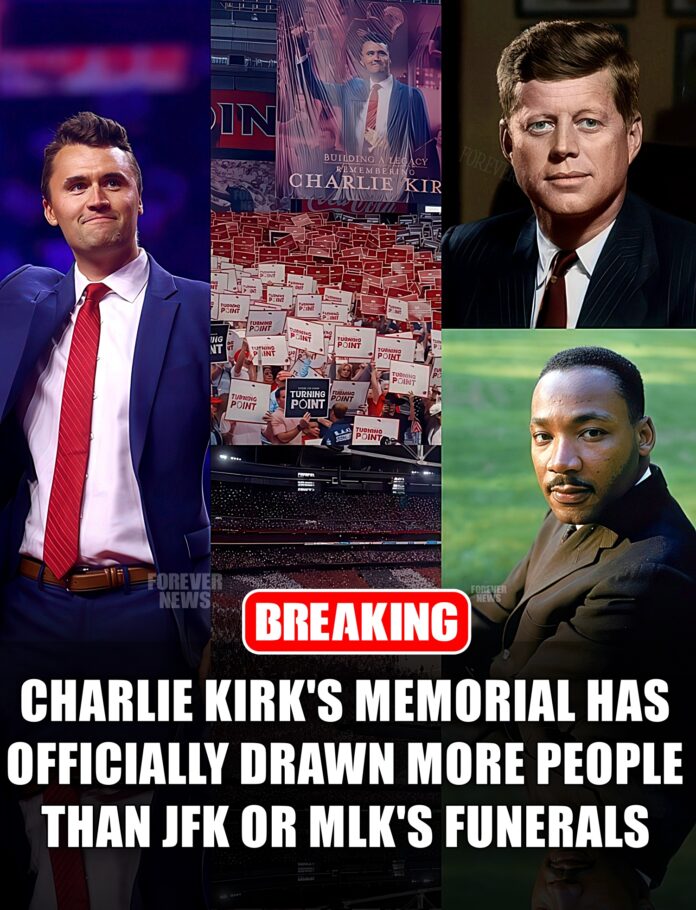The memorial service for Charlie Kirk, held on September 21, 2025, at State Farm Stadium in Glendale, Arizona, quickly became one of the largest gatherings in recent American history for a private citizen. Kirk, the conservative activist and founder of Turning Point USA, was assassinated earlier this month at Utah Valley University. His death prompted an outpouring of grief from his supporters and a wave of political and religious rhetoric that has extended well beyond the ceremony itself.

Attendance was extraordinary by modern standards. State Farm Stadium, home to the Arizona Cardinals, has a maximum capacity of roughly 70,000, and reports indicate the venue was filled. Additional overflow viewing areas pushed the estimated attendance toward 90,000, placing the memorial among the largest of its kind for a private American figure. Some outlets and speakers went further, suggesting that the crowds surpassed those seen at the funerals of President John F. Kennedy in 1963 or Dr. Martin Luther King Jr. in 1968. While those comparisons are highly disputed, the sheer scale of the event underscores the reach Kirk developed through his political activism and media presence.
The service itself blended religious revivalism with political themes. Speakers, including former President Donald Trump and other conservative leaders, framed Kirk not only as a man of faith but also as a martyr whose death symbolized an attack on traditional American values. Sermon-like speeches emphasized courage, sacrifice, and spiritual renewal, urging attendees to view Kirk’s life and death as a call to action. This merging of politics and religion was notable even in a nation where public mourning often takes on broader meaning. For Kirk’s supporters, the memorial was less about quiet remembrance and more about a movement, a declaration of purpose.
The rhetoric at the service raised questions in the wider public sphere. Comparisons to figures such as Kennedy and King struck many observers as controversial. Both JFK and MLK are remembered for shaping the national direction in ways that transcended partisan politics, while Kirk remained a polarizing figure whose career was rooted in the culture wars of the 21st century. Critics argue that placing him in the same category as these historic leaders risks distorting history. Supporters, however, insist that his work defending conservative values and his death under violent circumstances justify the parallels.
Regardless of perspective, the memorial highlighted how Kirk’s death has galvanized a segment of the American population. For many attendees, it was not just a farewell but a rallying cry. The blending of worship, patriotism, and political speech turned the event into something akin to a convention of faith and resolve. The atmosphere suggested that Kirk’s legacy may endure less through personal achievements and more through the movement his death helped to strengthen.
Whether or not the memorial truly eclipsed the legendary gatherings for Kennedy and King may never be determined with precision. What is clear is that Kirk’s passing has tapped into a deep current of religious and political energy in the United States, signaling that his influence is likely to persist, not just as a memory, but as a symbol for his followers.
